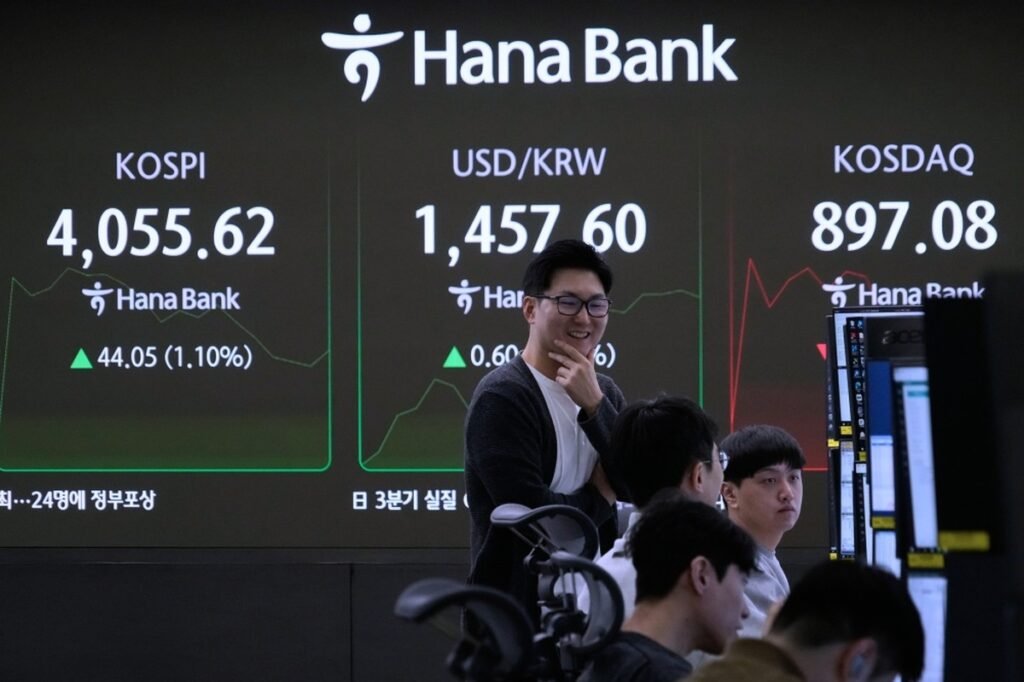Asian Markets Mixed Amid Economic Data and Geopolitical Tensions
Background
Asian equities presented a varied performance in early week trading, influenced by a confluence of economic data and geopolitical developments. While key indices in East Asia generally trended downwards, South Korea's technology sector defied the broader sentiment with notable gains. This regional activity unfolded following a subdued close on Wall Street last week.
Market Context
Tokyo's Nikkei 225 index registered a 0.3% decline, closing at 50,226.67. This dip followed a government report indicating a 1.8% annualised contraction in the Japanese economy during the July-September quarter, signaling underlying economic challenges. The Japanese yen also saw a slight depreciation against the US dollar.
Local Relevance
Chinese markets also experienced a downturn. Hong Kong's Hang Seng index shed 0.8% to 26,359.22, while the Shanghai Composite index fell 0.4% to 3,973.31. Market sentiment in the region was further dampened by escalating geopolitical friction between China and Japan, particularly concerning Taiwan.
Outlook
Stephen Innes of SPI Asset Management highlighted the shift, noting that China's response to recent remarks regarding Taiwan has moved beyond a diplomatic irritant. He stated it has become a "consequential macro input," compelling markets to reassess regional risk curves.
In contrast, South Korea's Kospi index advanced by 1.7%, closing at 4,078.39. This surge was primarily driven by strong buying interest in technology-related shares, particularly chip manufacturers. Major players like SK Hynix and Samsung Electronics saw substantial gains, up 6.8% and 3.3% respectively. This rally stems from strategic collaborations with industry leader Nvidia, focusing on artificial intelligence development.
The global financial landscape remains sensitive to both macroeconomic indicators and geopolitical shifts. While some Asian economies grapple with slowdowns, the robust performance of the technology sector underscores a broader investment theme in innovation and future growth. This regional performance comes after a mixed finish for US markets last Friday, though US futures showed some positive momentum at the start of the new week.
For investors in Kuwait and the broader GCC region, these developments offer crucial insights into global market dynamics. Diversification into resilient sectors like technology, even amidst regional volatility, remains a key strategy for managing portfolio risk. The fluctuating global equity markets also highlight the enduring appeal of safe-haven assets, such as gold, for regional portfolios seeking stability against economic uncertainties.
As global markets navigate complex economic data and geopolitical headwinds, investors will closely monitor central bank policies and further developments in key trade relationships. The interplay of traditional economic indicators and emerging tech trends will continue to shape investment strategies in the coming months.







